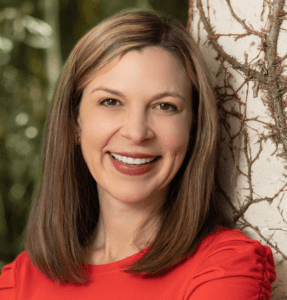Posted By: Sara Cullinan, PhD, Deputy Editor, AJHG
Each month, the editors of The American Journal of Human Genetics interview an author of a recently published paper. This month we check in with Christi (@ChristiGuerrin1) to discuss her paper “Family secrets: Experiences and outcomes of participating in direct-to-consumer genetic relative-finder services.”

SC: What prompted you to start working on this project?
CG: Everyone on the team is involved in studying the ethical, legal, and social implications (ELSI) of direct-to-consumer genetic testing, and we’ve been paying attention to stories in the media about individuals who have made surprising family discoveries from these tests and relative-matching services. We wanted to understand if these and other kinds of discoveries are common, how they’re experienced by those making the discoveries, and what they’re doing, if anything, as a result.
SC: What about this paper/project most excites you?
CG: To my knowledge, our paper reports the first survey conducted with individuals participating in genetic-relative finder services to understand their experiences. Until now, those experiences have largely been reported in the news as personal stories, so it’s exciting to collect data to give us some perspective on the range of motivations for participation, their outcomes, and participants’ responses to discoveries. It’s also exciting that so many were willing to participate in the survey and share their stories. We are truly grateful for their generosity, which of course made this work possible.
SC: Thinking about the bigger picture, what implications do you see from this work for the larger human genetics community?
CG: The community should understand that genetic relative-finder services are quite popular and most of their participants appear to be discovering information about themselves or their families. These discoveries can be important inputs in the care of patient-participants and their newly discovered genetic relatives and result in, among other things, recommendations to test for a medical condition or changes in the clinical management of a condition. In addition, the community should be aware that some might benefit from referrals to resources to support their mental health and well-being as they process their discoveries.
SC: What advice do you have for trainees/young scientists?
CG: Don’t be shy about reaching out to individuals you don’t know who you would like to learn from and work with. Some of my favorite collaborations—and a few friendships—are the result of cold emails. In the ELSI world, my sense is that most scholars are very receptive to these kinds of communications and eager to support trainees.
SC: And for fun, tell us something about your life outside of the lab.
CG: As my family and colleagues are well aware, I’m a big fan of podcasts. I listen to podcasts any chance I get and usually pair it with some other activity—exercising, doing chores around the house, or driving around Houston. I wish I could say that my podcast choices are geared toward learning something or improving myself. But the truth is, I almost always go for true crime.
